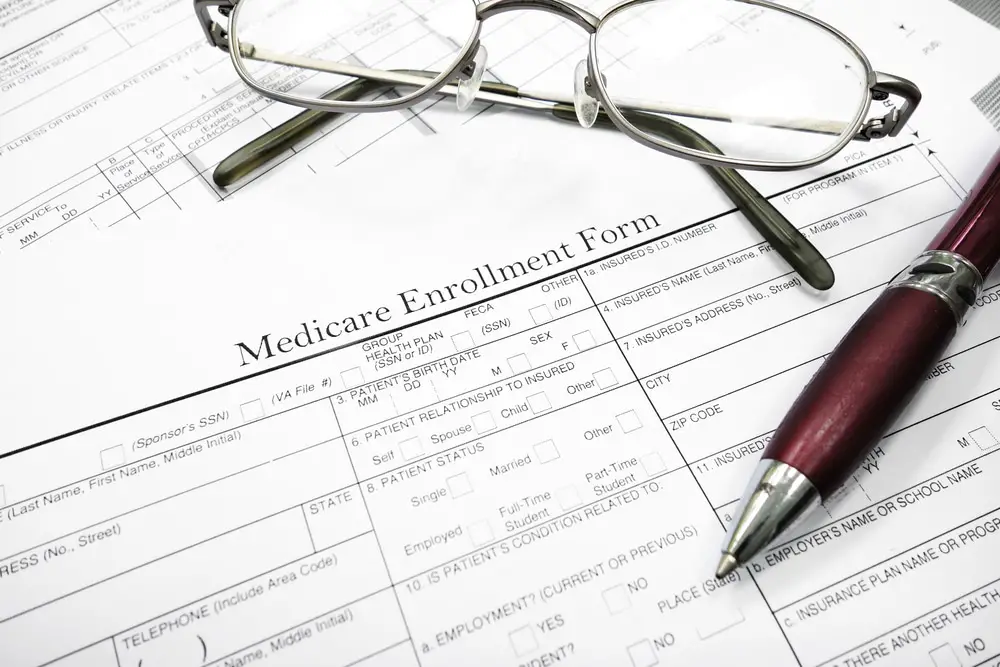When turning 65, it can be challenging to navigate the many different parts of the Medicare system. There are various aspects of Medicare, and it is essential to understand your medical insurance coverage to take advantage of its benefits completely.
So, what exactly is Medicare? Medicare is publicly-funded health insurance available to people who are over 65 or those with disabilities. Medicare is especially prominent for those with End-Stage Renal Disease, ALS, or any other disability type.
Because Medicare is publicly funded, some Medicare programs do not require a monthly premium or a copayments. Most individuals who enroll in Medicare programs have been paying into a Medicare tax for some time before their enrollment.
What Does Medicare Cover?
Medicare covers various services, such as inpatient hospital stays, medical equipment and supplies, routine doctor’s visits, surgeries, and preventative treatments. Medicare covers most services offered by the healthcare system, similar to standard insurance coverage. Unfortunately, Medicare doesn’t cover dental care and other things like hearing aids or eye exams.
Although Medicare is publicly funded, those who are eligible for the services may still have to pay a monthly premium for their coverage. Furthermore, individuals can also buy into medicare if they are not eligible.
Which Plans are Associated with Medicare?
There are a variety of plans associated with Medicare, including standard Medicare and Medicare Advantage Plans. There are several Medicare Advantage Plans, including:
- Health Maintenance Organization Plans
- Preferred Provider Organization Plans
- Private Fee-for-Service Plans
- Special Needs Plans
It’s crucial that you carefully consider which plan would be the best fit for you, as choosing the right plan will allow you to receive the care you need. We will break these plans down below:
Health Maintenance Organization Plan (HMO)

A Health Maintenance Organization plan covers most health services, such as hospital visits, routine preventive services, and prescription drugs. According to Medicare.gov, this plan covers treatments such as emergency care, out-of-area urgent care, and out-of-area-dialysis.
However, this plan has a few drawbacks, such as the need for a referral to see a specialist, and paying full price when seeking care from a facility not associated with the HMO plan.
Preferred Provider Organization Plan (PPO)
The Preferred Provider Organization Plan is another viable option. Private insurance companies offer these types of plans and have a vast network of doctors and specialists to choose from.
There are various benefits to this plan, as it is much more flexible than the HMO plan. You have the option to receive care from almost any healthcare provider, even if they are out of the plan’s network. However, it often costs more to seek this out of network care.
It is important to be extra careful to ensure that your PPO plan includes prescription drug coverage. If you enroll in a PPO plan that lacks coverage, you will not be able to enroll in Medicare Part D.
Unlike the HMO plan, those who enroll do not have to choose a primary doctor, and you do not need a referral to see a specialist. However, it is recommended that you see a specialist within the plan’s network, as it will cost less than an out of network specialist.
Private Fee-for-Service Plans (PFFS)
Similar to the PPO plan, the PFFS plan is offered by a private insurance company. However, this plan is associated with Medicare Advantage Part C and will set the rates that it will pay to doctors, specialists, and other healthcare providers. With this plan, you do not need to choose a primary doctor. The plan offers a network of doctors and other medical professionals that offer discounts to those enrolled.
Prescription drug coverage varies between plans. If your plan does not offer coverage, you can enroll in Medicare Part D. Furthermore, you do not need a referral in order to see a specialist.
Special Needs Plans (SNP)
A Special Needs Plan is available to those with a variety of disabilities. These plans will often cater directly to these patients to provide them with the best care possible. Upon enrolling in this plan, you will most likely have to utilize the doctors within the network, as they specialize in catering to your specific disability.
This plan covers prescription drugs; however, you will need to get a referral to see a specialist. Furthermore, those enrolled must choose a primary doctor in most plans offered.
What Are the Different Parts of Medicare?
There are three separate Medicare plans that you could be eligible for: Medicare Part A, Part B, and Part D.
There are various aspects or parts of Medicare that cover various facets of the healthcare system. There are three separate Medicare plans that you could be eligible for: Medicare Part A, Part B, and Part D.
What Does Medicare Part A Cover?
Medicare Part A covers a variety of healthcare services and often does not require a monthly premium. These are usually emergency services and is considered hospital insurance or special services such as hospice. The benefits offered in Part A are:
- Hospital visits, long-term care at a skilled nursing facility, hospice care, and home health care visits.
- Often, those who enroll in part A do not have to pay a premium if they paid Medicare taxes.
A variety of individuals might qualify for Part A. These typically include those who have previously been approved for Social Security benefits, have received a railroad retirement package, or are employed by a federal government agency that provides Medicare coverage.
You can also receive Part A benefits under the age of 65 if you meet the following criteria:
- You receive railroad retirement disability benefits for at least 24 months
- Have Social Security benefits
- Are Diagnosed with End-Stage Renal Disease
Although part A is publicly funded, you may not qualify and need to buy into the plan. According to Medicare.gov, for 2020, Medicare Part A prices range from $252-$458 monthly. These monthly fees are often adjusted determined by your income while working. Individuals who buy into Part A oftentimes pay monthly payments for both Part A and Part B.
What Does Medicare Part B Cover?
Medicare Part B usually covers routine doctor’s visits, medical supplies, such as a c-pap machine, and a variety of other services. Part B is similar to your standard insurance plan and covers most routine medical services. Part B covers:
- Most doctor’s services like lab tests and x-rays
- Medical supplies
- Outpatient care
Although Part B covers most medical expenses that standard insurance would cover, it comes with a monthly premium for most individuals. These rates are based on your income during your working years and are adjusted based on how much you earn annually.
What Does Medicare Part D Cover?
Medicare part D covers prescriptions and vaccines recommended by your doctor. In order to receive Part D, you must enroll in a plan such as the Medicare Advantage plan that offers prescription drug coverage. Part D covers most prescription drugs and offers a combination of name brand and generic drugs.
It is important to understand exactly which prescriptions your plan covers, as they vary significantly. It is difficult to assess exactly how much you will pay monthly for Part D coverage, as this is completely dependent on which plan you choose.
A couple of different plans include Part D coverage, such as the Medicare Advantage Plan and the Medicare Drug Plan. If you are already enrolled in the Medicare Advantage plan, Part D will be offered to you. If you are not enrolled in the Medicare Advantage plan, you may enroll in one of the Medicare drug plans, albeit with some fees involved.
How to Apply for Medicare Coverage
Applying for Medicare can be an in-depth and lengthy process. There are various ways in which you can apply for Medicare, and you must use the right method. A majority of those who enroll in Medicare enroll through social security, and some, even automatically.

There are also a number of instances where people with disabilities may be eligible for Medicare before they reach the age of 65. You may be eligible under 65 if you have either Amyotrophic Lateral Sclerosis (ALS) or End-Stage Renal Disease. However, according to the official Medicare website, you must meet the following criteria:
- Receive Social Security benefits for at least 24 months
- Receive Railroad Retirement Board benefits for at least 24 months
When you become eligible for Medicare, you should first enroll in Part A, which is considered hospital insurance. Because many receive healthcare through their employer or privately, it is recommended that you refrain from applying to Part B until necessary. However, this also depends on the type of health insurance you currently have before becoming eligible for Medicare.
How to Apply for Medicare if You Are Still Working
You can still apply for Medicare if you are employed if specific circumstances apply.
Your company employs fewer than 20 people
If you are still working, there are a variety of options available to you. However, your company’s size often plays a critical role in whether you should apply when you’re eligible or wait until you retire.
According to Medicare.gov, if your company employs fewer than 20 people, it is recommended that you enroll as soon as you’re eligible. In this case, Medicare’s coverage frequently covers your expenses before your private insurer.
Your company employs more than 20 people
If your company employs more than 20 people, it is oftentimes recommended that you ask your employer if you have a group health plan. A group healthcare plan allows you to delay your Medicare Part A and Part B without paying a lifetime late enrollment fee. This health care plan is great for those who plan to work past 65, but still want to take advantage of their Medicare benefits.
It is also important to note that Medicare Part A begins 6 months prior to the date you apply, covering any expenses you may have accrued during that time. If you have a health savings account, it is important to stop contributing to it in order to avoid any tax issues.
What if You Retire before Applying for Medicare?
If the coverage provided by your employer ends prior to your application for Medicare, you may be eligible for a COBRA grant. However, this could end up costing you more money in the long run, and you are only covered for 18 months.
If you choose not to apply for COBRA coverage, you have at least 8 months to apply to Medicare after your employer-sponsored health insurance ends. However, it is possible to apply for COBRA and then apply to Part B after COBRA coverage expires. It is important to note that even if you are enrolled in COBRA, it is important to Apply for Part B before your coverage expires. In order to sign up for Part B, you must:
- Submit an Application for Enrollment in Part B (CMS-40B)
- Request for Employment Information (CMS-L564).
Enrollment for Veterans
According to Medicare.gov, it is recommended that veterans apply for both Part A and Part B as soon as they are eligible. If you are a veteran or active military personnel and have TRICARE, you must enroll in Part B if you want to keep your TRICARE coverage.
Enrollment for People with Disabilities Under 65
If you are under the age of 65 and have a disability, you can receive Part B if you qualify for Part A. This is especially prominent for those who have been diagnosed with End-Stage Renal Disease(ESRD). However, it is important to note that those with ESRD are enrolled in Part A and Part B, as it is required to cover the costs of a kidney transplant and other vital treatments.
Do You Have to Renew Your Medicare Plan Annually?
No, once you are enrolled in a Medicare program, you are not required to renew annually. However, you can make various adjustments to your plan. Even if you have to pay premiums, your coverage will continue to renew automatically.
However, there are a variety of instances in which you would be required to renew, such as:
- Residing outside a specified coverage area
- Your current plan fails to renew your contract
- Your provider is no longer associated with the Medicare program
Carefully Review Your Plan Prior to Enrollment
It is important to review your chosen plan and decide if it will sufficiently avoid out-of-pocket costs for your medical treatments. After you apply for the plan you are qualified for, you will receive your Medicare card and all the information about your chosen plan.
Be sure to carefully consider all Medicare plans available to you, and choose the one that best caters to your needs. Visit Medicare.gov for more information on the various types of Medicare plans and which plans you may qualify for.
